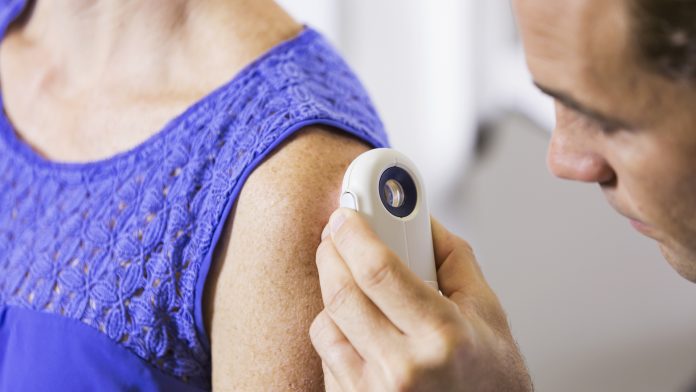
Researchers from the University of Helsinki have developed an Artificial Intelligence (AI) model that could be used to improve skin cancer treatment.
The researchers have developed an AI that can predict which skin cancer treatment would work best for a patient. The University of Helsinki’s Comprehensive Cancer Centre worked alongside Aalto University and Stanford University on the project.
The AI model could potentially make it possible to diagnose skin cancer through blood tests, determine the prognosis and provide targeted skin cancer treatment.
The study has been published in the Nature Communications journal.
Responses to existing skin cancer treatment is mixed
Boosting the body’s defence system has been proven to be an effective skin cancer treatment, however, results differ between patient groups. In some patients, the cancer was eliminated, while others gained no benefit at all.
“Prior research has been unable to provide doctors with tools that would predict who will benefit from treatment that activates the defence system. The correct targeting of therapies is extremely important since drug therapies are expensive and serious adverse effects are fairly common,” said doctoral researcher Jani Huutanen at the University of Helsinki and Aalto University.
The international research group have suggested that the immune cells of those patients who felt no benefit do not recognise skin cancer as a threat. Therefore, those patients do not benefit from skin cancer treatment.
Using the AI model, the researchers examined 500 skin cancer patients and compared them against samples from almost 1,000 healthy individuals. Using these samples, the researchers calculated the number of cells that correctly recognised the threat of skin cancer.
More skin cancer-sensing defensive cells were found in patients with melanoma than in healthy patients.
“This finding may in the future make it possible to identify skin cancer from a blood sample,” said Professor of Translational Haematology, Satu Mustjoki from the University of Helsinki.
Additionally, skin cancer patients who had more defensive cells that recognised skin cancer correctly were more likely to benefit from skin cancer treatment that activated the immune system.
The potential of AI in medicine
The use of AI in medicine has grown significantly in recent years; however, applying AI to patient care requires long-term collaboration between doctors and researchers specialising in AI.
“In future studies, our aim is to explore the utilisation of the AI model now developed and investigate whether it can predict treatment responses also for novel cancer drug therapies still in development,” said Associate Professor of Computational Biology and Machine Learning Harri Lähdesmäki from Aalto University.
“Our AI model is agile and adaptable, making it possible to calculate the number of cancer-sensing defensive cells also in the case of other cancers, including breast cancer, lung cancer and blood cancers,” added Jani Huuhtanen.
“All of our research is based on open-source software, which makes our AI model available to other researchers and doctors, also enabling its further development,” said Huuhtanen.







